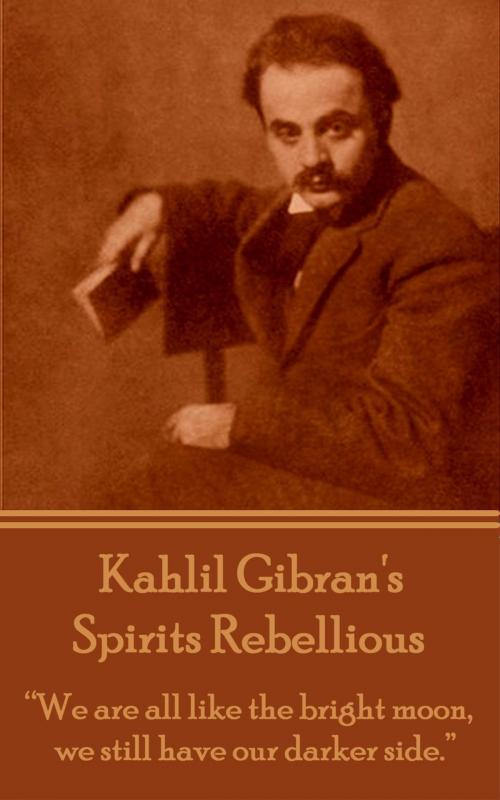Spirits Rebellious
“We are all like the bright moon, we still have our darker side.”
Fiction & Literature, Poetry, Inspirational & Religious, Nonfiction, Religion & Spirituality, Philosophy| Author: | Kahlil Gibran | ISBN: | 9781783946358 |
| Publisher: | Deadtree Publishing | Publication: | December 15, 2009 |
| Imprint: | A Word To The Wise | Language: | English |
| Author: | Kahlil Gibran |
| ISBN: | 9781783946358 |
| Publisher: | Deadtree Publishing |
| Publication: | December 15, 2009 |
| Imprint: | A Word To The Wise |
| Language: | English |
Khalil Gibran was one of a number of Arab intellectuals and writers who lived in the United States in the beginning of the twentieth century and who had a great influence on the development of modern Arabic literature through the exploration of Western literary movements. The group was presided by Khalil himself and was baptized Arrabitah, or “The League.” Generally, the Arabic literature of the beginning of the twentieth century was marked by the revolutionary ideas advanced by Arrabitah members as well as by other Arab intellectuals and literary men who felt the urgent need to revolutionize classic Arabic verse and prose. It was a growing urge to innovate and to break with old literary traditions and conventions. The current eventually helped to open new horizons such as the flourishing, in the second half of the twentieth century, of Arabic prose poetry and free verse. The Arrabitah experience was, actually, fundamental in the life of Khalil Gibran who was regarded as a literary rebel and a leading figure of the Arabic literary Renaissance in addition to his Oriental contributions to Western poetry and thought. Here we publish ‘Spirits Rebellious’.
Khalil Gibran was one of a number of Arab intellectuals and writers who lived in the United States in the beginning of the twentieth century and who had a great influence on the development of modern Arabic literature through the exploration of Western literary movements. The group was presided by Khalil himself and was baptized Arrabitah, or “The League.” Generally, the Arabic literature of the beginning of the twentieth century was marked by the revolutionary ideas advanced by Arrabitah members as well as by other Arab intellectuals and literary men who felt the urgent need to revolutionize classic Arabic verse and prose. It was a growing urge to innovate and to break with old literary traditions and conventions. The current eventually helped to open new horizons such as the flourishing, in the second half of the twentieth century, of Arabic prose poetry and free verse. The Arrabitah experience was, actually, fundamental in the life of Khalil Gibran who was regarded as a literary rebel and a leading figure of the Arabic literary Renaissance in addition to his Oriental contributions to Western poetry and thought. Here we publish ‘Spirits Rebellious’.















